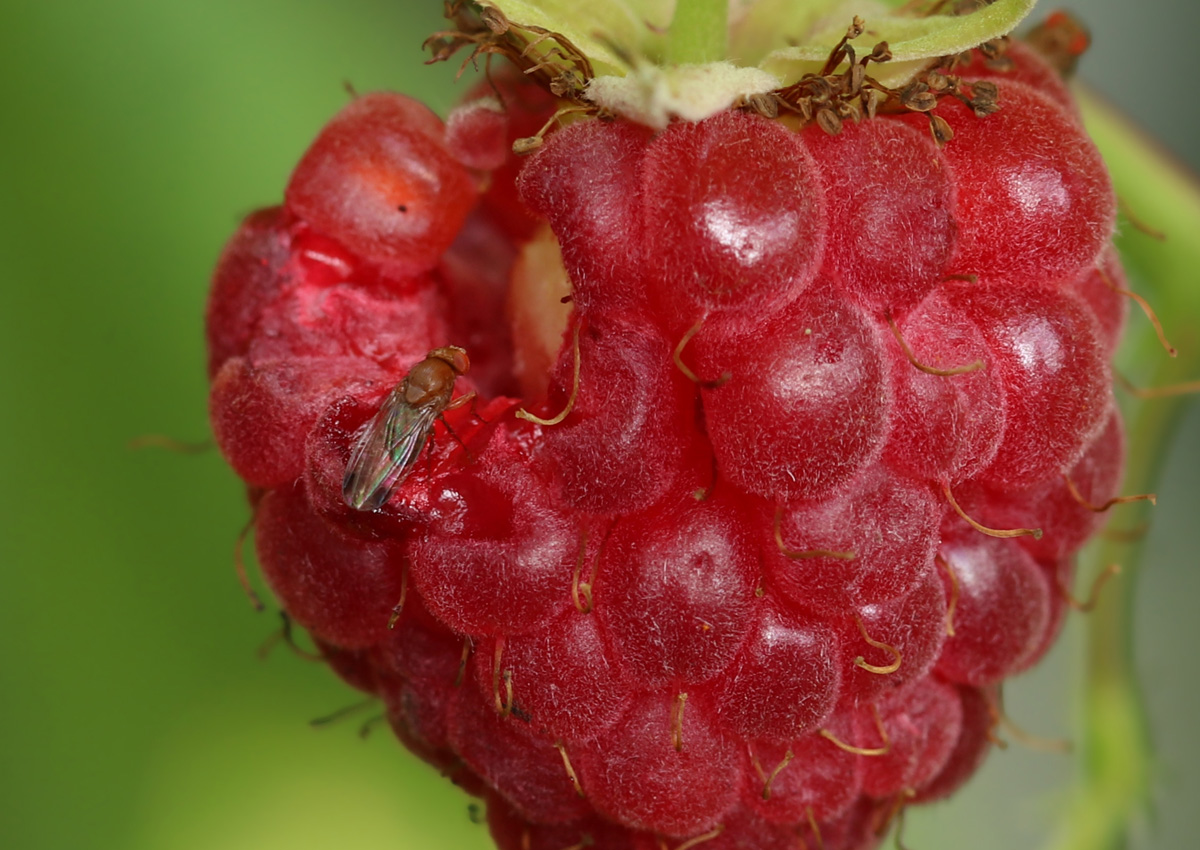
UC San Diego Researchers Use CRISPR to Target Global Crop Pest
August 24, 2022| |
Using CRISPR technology, researchers at the University of California San Diego have set their aims on a worldwide pest known to decimate valuable food crops. Researchers Nikolay Kandul, Omar Akbari, and their colleagues have now adapted the precision-guided sterile insect technique (pgSIT) for use in Drosophila suzukii, also known as spotted-wing drosophila, an invasive fruit fly responsible for millions of dollars in crop damage.
The spotted-wing drosophila has invaded many parts of the world and caused widespread agricultural and economic damage to several crops, including apples, cherries, raspberries, blueberries, strawberries, peaches, grapes, olives, and tomatoes. The flies proliferate by depositing their eggs inside a growing fruit. They are notoriously difficult to control using insecticide sprays since their larvae consume ripening fruit pulp.
The UC San Diego research team used CRISPR editing to target genes essential for female D. suzukii viability and male fertility. The pgSIT eggs could be produced at a factory and released at sites invaded by pests such as D. suzukii. Eggs could be deployed directly into areas where the flies are causing damage, and only sterile males would hatch after about two weeks. Since only two genes are knocked out, the males emerge fit enough to compete with their wild counterparts and quickly seek females to mate with, resulting in inviable offspring. “This technology would replace the need for insecticides and only suppress the target species population,” said Akbari.
For more details, read the article in the UC San Diego News Center.
| |
You might also like:
- More Clues on the Mystery of Fast-evolving Genes Found in ‘Junk DNA'
- Researchers Develop First Gene Drive Targeting World's Invasive Crop Pest
- Researchers Generate Whole Genome Map of Fruit Fly Genetic Recombination
Biotech Updates is a weekly newsletter of ISAAA, a not-for-profit organization. It is distributed for free to over 22,000 subscribers worldwide to inform them about the key developments in biosciences, especially in biotechnology. Your support will help us in our mission to feed the world with knowledge. You can help by donating as little as $10.
-
See more articles:
-
Gene Editing Supplement (August 24, 2022)
-
Research and Tools
- Enhanced Green Fluorescent Marker Effective in Transforming Grapes Using CRISPR
- UC San Diego Researchers Use CRISPR to Target Global Crop Pest
- CRISPR Method Successfully Developed for Medicinal Fungus
- CRISPR-Based Test Enables Fast and Accurate Detection of SARS-CoV-2 Variants
- FDA Approves CRISPR-based Therapeutic for Trial
-
Trends and Impact
- CRISPR Market Size to Reach US$3.73B by 2032
-
Read the latest: - Biotech Updates (December 17, 2025)
- Gene Editing Supplement (December 17, 2025)
- Gene Drive Supplement (February 22, 2023)
-
Subscribe to BU: - Share
- Tweet

